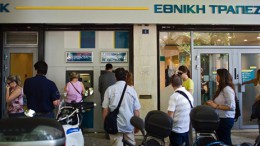ECB monetary policy places the EZ in an “increasing depression”
SAO PAOLO | By Marcus Nunes via Historinhas | Before it was Peter Coy with John Maynard Keynes Is the Economist the World Needs Now. Now it´s Anatole Kaletsky with The takeaway from six years of economic troubles? Keynes was right: The main lesson is that government decisions on taxes and public spending have turned out to be more important as drivers of economic activity than the monetary experiments with zero interest rates and quantitative easing that have dominated media and market attention.




